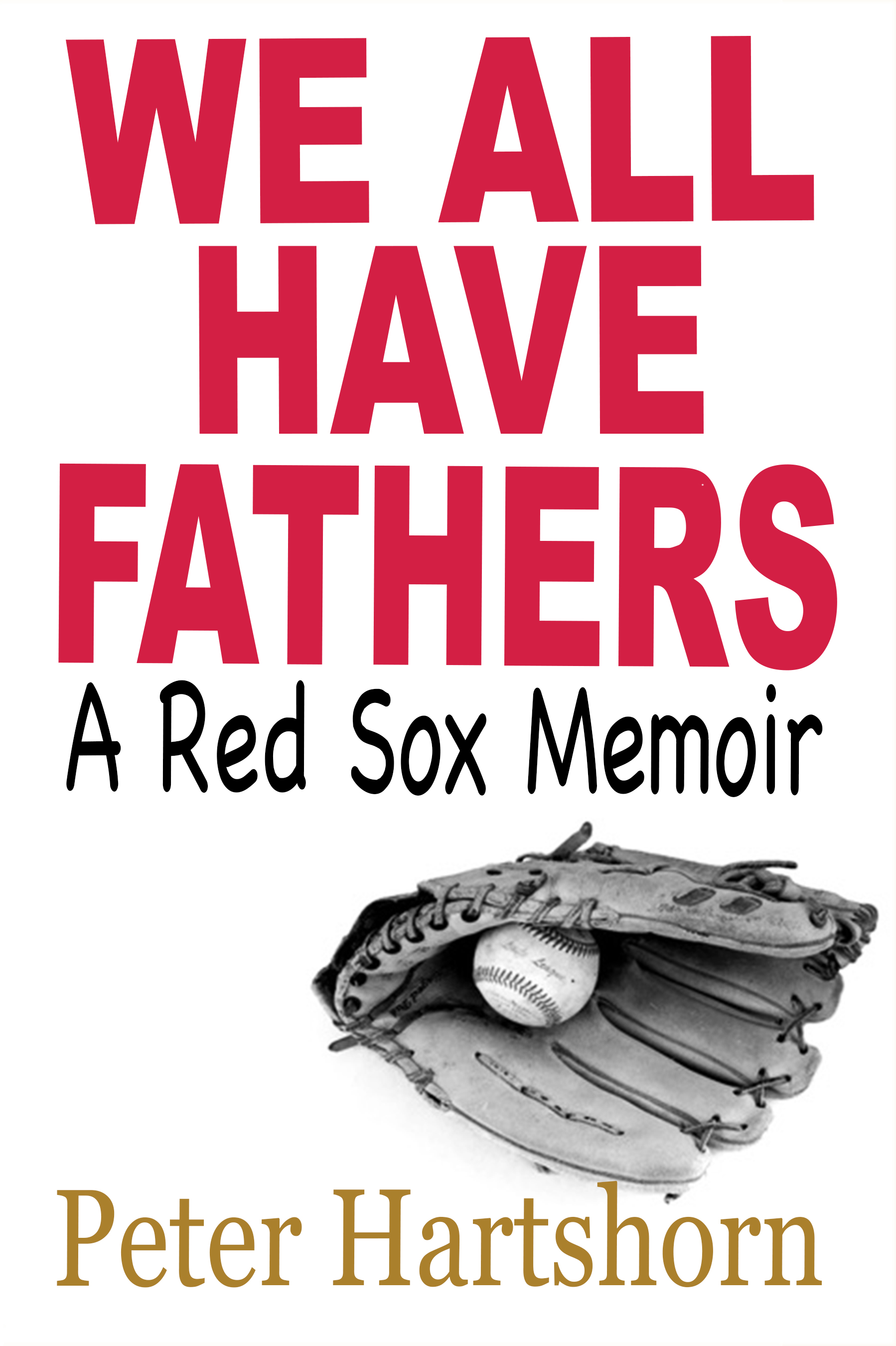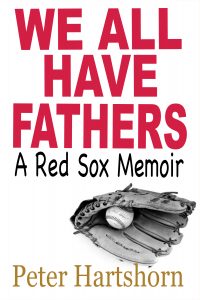
We All Have Fathers: A Red Sox Memoir
By Peter Hartshorn
The Red Sox of the early 1960s were an irreverent—and often irrelevant—team that routinely played in front of thousands of empty seats at Fenway Park. While the club featured a sprinkling of stars in its lineup year after year, it also found ways to lose that made it an annual laughingstock in the American League. And its championship drought of nearly half a century only added to the inglorious legend. But to author Peter Hartshorn as a boy, there was nothing ridiculous about his beloved Red Sox, and going to games at Fenway with his father was pure joy, even sitting in the midst of all the unfilled seats and knowing the high probability of the team finding yet another way to lose. For every time he watched in awe a Yaz double off The Wall, or a Tony C shot sailing over the net, or a lightning-bolt fastball from The Monster, Dick Radatz, he experienced the thrill of Red Sox baseball at Fenway Park and, like so many boys before him, dreamed of being on that field himself one day.
It was all made possible by his father, Lewis Hartshorn, a lifelong baseball fan whose first love had been the Boston Braves of the National League, but who instilled a deep appreciation of the sport in Peter, nurturing it with endless fly balls in the backyard and regular trips to Fenway Park to see the boy’s diamond heroes, flawed though many of them were.
Then came the Impossible Dream season of 1967 and the birth of Red Sox Nation, a magical transformation that no one saw coming. It seemed almost too good to be true, and it was, sadly, for Peter and his father.
As years passed, a debilitating mental illness that had plagued Peter’s father for decades divided father and son and pushed baseball aside before long-forgotten memories of the sport brought an unexpected reconciliation in his father’s final days. We All Have Fathers: A Red Sox Memoir is a moving reminder of the power of baseball to be an unconquerable tie that binds fathers and sons.
Kevin Baker, co-author with Reggie Jackson, Becoming Mr. October
“A thoroughly enjoyable, poignant, intimate story of the making of the Red Sox—and a Red Sox fan. For those who like baseball, and love family.”
Leigh Montville, author of Ted Williams: The Biography of an American Hero
Take a ride in the Wayback Machine with Peter Hartshorn, back to when a family of four didn’t have to get a second mortgage to buy seats along the first base line at Fenway Park, back to when the athletes weren’t multi-millionaires, back to when baseball seemed to be a more simple game. Enjoy the scenery. Very nice.”
My most intense days as a Red Sox fan came when I was a young boy, in the 1960s, playing baseball on a daily basis with friends who also loved the sport. Baseball pretty much held the meaning of life in those long summers of elementary school vacation and steamy days spent on countless playgrounds and ballfields, and the Red Sox provided much of that meaning for me. Even with baseball being the sport of choice for so many baby-boomer kids, though, the abysmal Red Sox could not attract them—or, more importantly, their parents—to come out to see the team play. A trip to Fenway was an afterthought for most families, something they did maybe once a year, if at all.
In my case, fortunately, going to Fenway in those days was not only not an afterthought but was a major piece of my life. My late father, Lewis Hartshorn, who seemed to know more about baseball history than anyone else I knew at that young age, brought me to Fenway on a regular basis, each game, in my innocent mind, being at least as momentous as my race down the stairs every Christmas morning. Actually, Yaz and Tony C and Dick Radatz may have even been higher than Santa Claus on my list of heroes at the time—it was pretty close. And whether I was about to see Roger Maris and the New York Yankees or Mike Hershberger and the Kansas City Athletics was of little concern to me—major league ballplayers of any caliber were a thrill to watch, and I never tired of the experience.
Change, however, was coming, both for the Red Sox and for my father and me. In genuine amazement, I saw the Red Sox go from an annual doormat in the American League in performance and attendance to a legitimate contender playing regularly in front of large crowds both at Fenway Park and in nearly every other city they visited. Suddenly, not only boys and fathers who loved baseball but other boys, girls, their parents—everyone seemed to be eager to get tickets to Fenway. This remarkable transformation of the team and its fans was the true birth of Red Sox Nation, a coast-to-coast BoSox mania still going strong fifty years on. The story of baseball and the Red Sox in my own life, I suspect, will recall a past warmly familiar to many others who were also present at the creation of Red Sox Nation, while informing younger fans that from many years of pain may come unimagined beauty, a perfectly fitting truth for the Boston Red Sox.
Sadly, for my father and me, the beauty of our own early baseball days of enjoyment together gradually was eclipsed by the pain of experience in the real world beyond the white lines. A debilitating mental illness progressively sapped my father’s interest in both baseball and nearly life itself, while creating a chasm between us that became increasingly challenging for either of us to bridge. Decades of strained relations seemed destined to last into the grave until his final days, when long-forgotten memories of baseball, much of it documented in those decaying boxes in the closet, brought us final redemption and peace.
- Peter Hartshorn
